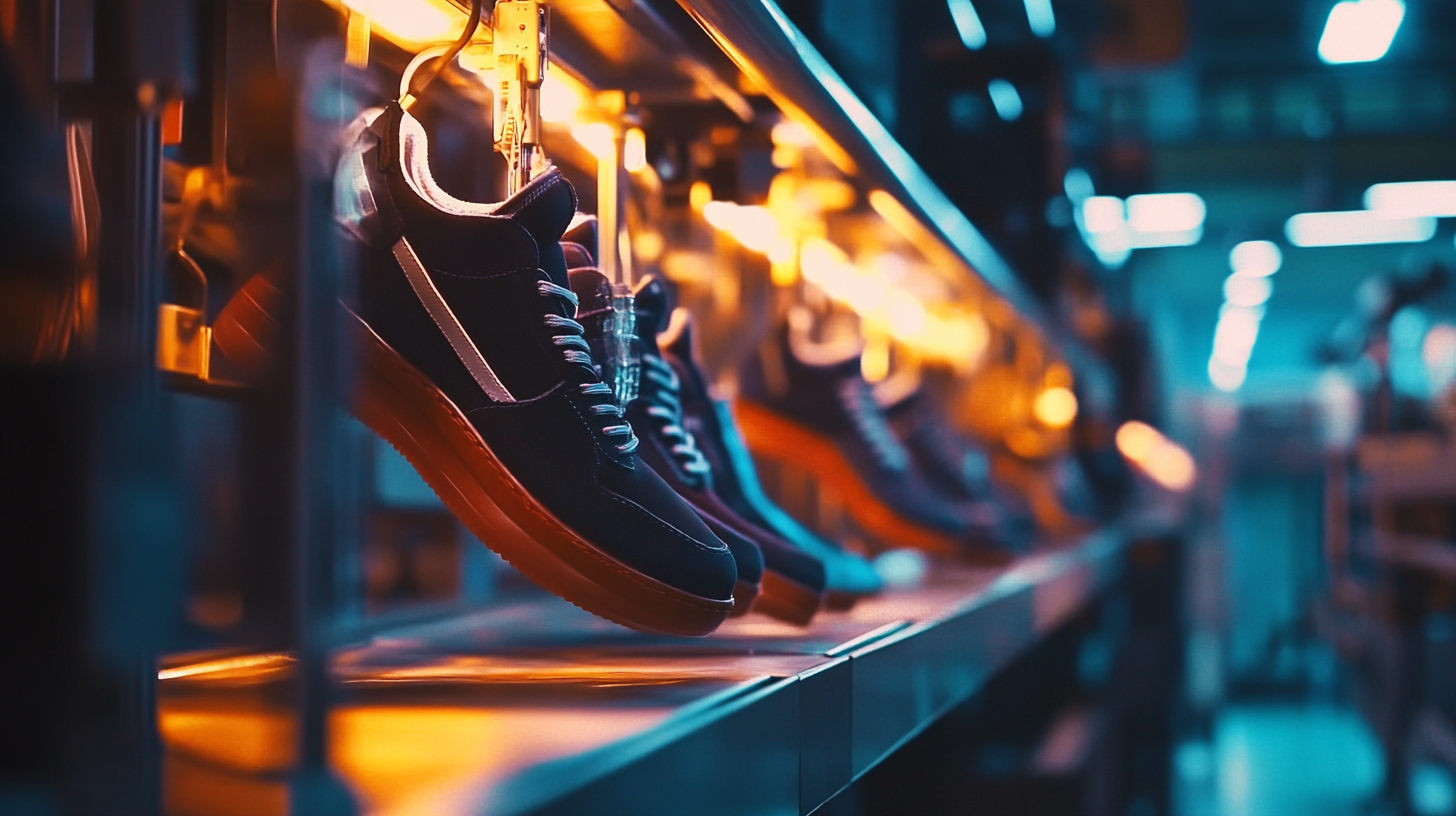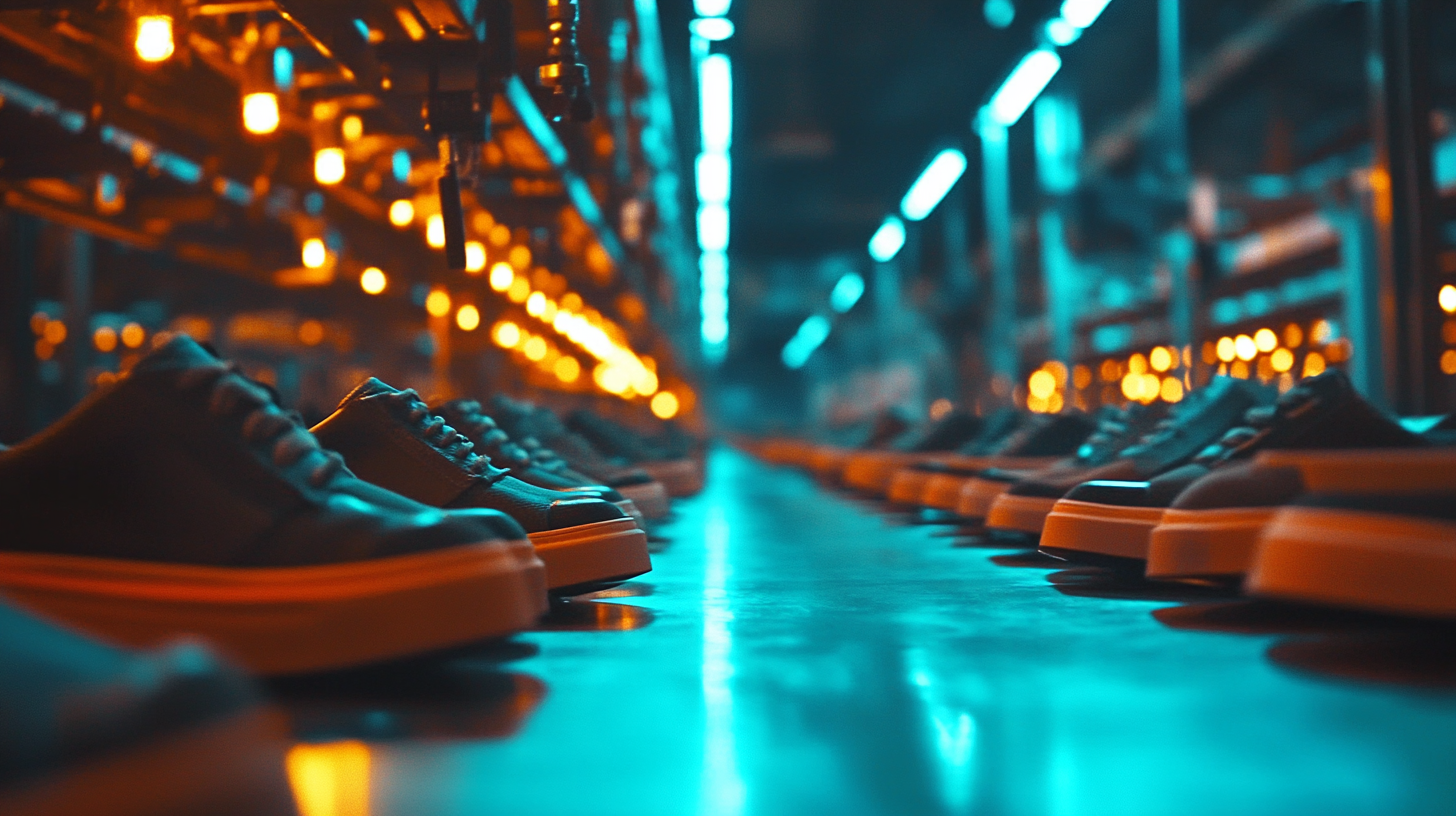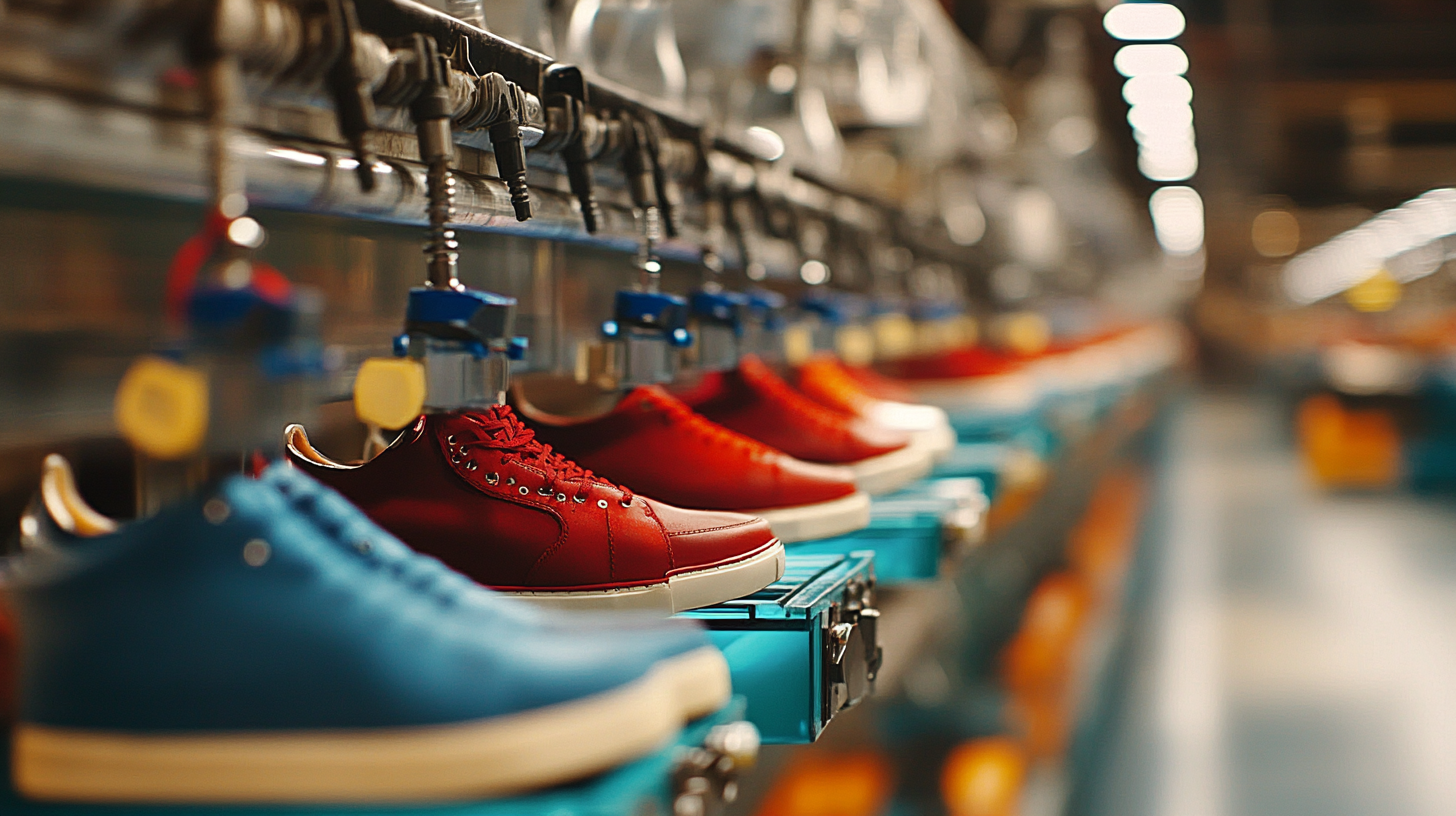
In the competitive landscape of the sneaker industry, selecting the right sneaker factory is vital for businesses aiming to scale and meet consumer demands. According to a report by Statista, the global athletic footwear market is projected to reach approximately $132 billion by 2026, highlighting the increasing need for manufacturers who can deliver high-quality products on time. Furthermore, a survey by the Footwear Distributors and Retailers of America (FDRA) indicates that over 60% of brands consider quality and reliability as the top criteria when choosing a factory partner. As the market grows, so does the complexity of production, making it essential for brands to understand the nuances of factory capabilities, pricing, and supply chain management. This ultimate checklist will guide you through the essential factors to consider when choosing the best sneaker factory that aligns with your business needs, ensuring that you stay competitive in this dynamic industry.

When selecting a sneaker factory that aligns with your business needs, it's essential to consider various manufacturing capabilities that can adapt to future trends in the footwear industry. According to a recent report by Mordor Intelligence, the global athletic footwear market is projected to reach a staggering $100 billion by 2025, driven by a growing emphasis on health and wellness among consumers. This dramatic increase necessitates manufacturers that can leverage advanced technologies such as 3D printing and sustainable materials to meet rising consumer demands for both performance and environmentally-friendly products.
Moreover, flexibility in production is becoming increasingly critical as brands aim for rapid response to market trends. Statista reports that around 67% of footwear companies are shifting towards more agile manufacturing processes to reduce lead times and increase customization options. Factories that are equipped with smart manufacturing capabilities—think IoT integration and data analytics—can significantly enhance production efficiency and adaptability. By prioritizing these factors in your evaluation process, you position your brand to not only keep pace with market trends but also to innovate ahead of the competition in the evolving sneaker landscape.

In today's fast-evolving manufacturing landscape, the integration of Industry 4.0 technologies is revolutionizing sneaker production efficiency. These advancements, particularly artificial intelligence, are becoming pivotal in optimizing workflows and enhancing productivity. By leveraging AI, factories can analyze vast amounts of data in real-time, leading to informed decision-making that streamlines production processes, reduces waste, and ultimately lowers costs. The implementation of smart production management systems enables manufacturers to adapt swiftly to market demands while maintaining high standards of quality and sustainability.
Moreover, the use of innovative technologies like 3D printing is further transforming sneaker design and production. With 3D printing, brands can create custom designs with precision, minimizing material waste and energy consumption. This not only contributes to ecological sustainability but also allows for rapid prototyping, which accelerates the overall production timeline. By adopting these cutting-edge practices, sneaker manufacturers can not only boost their efficiency but also align more closely with the growing demand for environmentally friendly products in the footwear industry. The synergy between technology and sustainability is becoming a crucial factor in choosing the best sneaker factory to meet business needs.
When selecting a sneaker factory for your business,
prioritizing sustainability is more important than ever.
With consumers becoming increasingly eco-conscious, choosing a manufacturer that adheres to eco-friendly practices can set your brand apart.
Look for factories that are certified by reputable organizations that promote sustainable manufacturing.
These certifications often indicate compliance with environmental management systems, waste reduction programs, and the use of renewable energy sources.
Additionally, assess the materials used in production.
Factories that utilize organic, recycled, or biodegradable materials
contribute to a reduced carbon footprint and minimize the impact on natural resources.
Engaging with manufacturers who are transparent about their sourcing practices can also provide insight into their sustainability efforts.
It’s crucial to ensure that the production processes are not only efficient but also consider the ecological ramifications, paving the way for a more sustainable future in the sneaker industry.
In 2025, the decision to outsource sneaker manufacturing or to keep production domestic is heavily influenced by a cost-benefit analysis that takes into account not only immediate expenses but also long-term strategic advantages. According to a recent report by McKinsey & Company, while outsourcing can significantly reduce production costs—estimated to be up to 30% lower than domestic manufacturing—factors such as supply chain reliability and ethical production practices are becoming increasingly crucial. In fact, a survey found that 71% of consumers would pay more for sustainably produced goods, pushing brands to re-evaluate their sourcing strategies.

Moreover, The Business Research Company indicates that the global sneaker manufacturing market is projected to grow from $100 billion in 2023 to over $130 billion by 2026. This growth suggests that businesses must weigh the scalability and flexibility provided by overseas manufacturers against potential risks such as geopolitical instability and trade tariffs, which can inflate costs.
Therefore, while cost savings are appealing, investing in domestic manufacturing could fortify brand reputation and foster consumer loyalty, making it a compelling choice for many companies looking to align with market trends and values in 2025.
The process of selecting the right sneaker factory partner is significantly influenced by effective supply chain management. A robust supply chain not only ensures the timely delivery of materials and products but also enhances collaboration among various stakeholders. When evaluating potential factories, businesses must consider how well they can integrate their operations with existing supply chain processes. This includes assessing aspects like inventory management, logistics, and production scheduling, all of which play a pivotal role in maintaining efficiency and minimizing costs.
Additionally, a successful supply chain management strategy enables businesses to respond quickly to market changes. By selecting a sneaker factory that is agile and responsive to your supply chain needs, you can better adapt to shifts in consumer demand or material shortages. The ability to track and analyze data throughout the production process fosters transparency and helps in making informed decisions. Therefore, when choosing a factory, it’s crucial to prioritize those that demonstrate a commitment to optimizing their supply chain practices, as this ensures a stronger partnership capable of driving your business forward.
| Criteria | Importance Level | Evaluation Score (1-10) | Comments |
|---|---|---|---|
| Production Capacity | High | 8 | Must meet demand forecasts. |
| Quality Standards | High | 9 | ISO certifications preferred. |
| Lead Times | Medium | 7 | Quick turnarounds are essential. |
| Cost Structure | High | 6 | Ensure competitive pricing. |
| Sustainability Practices | Medium | 8 | Prefer factories with eco-friendly initiatives. |
